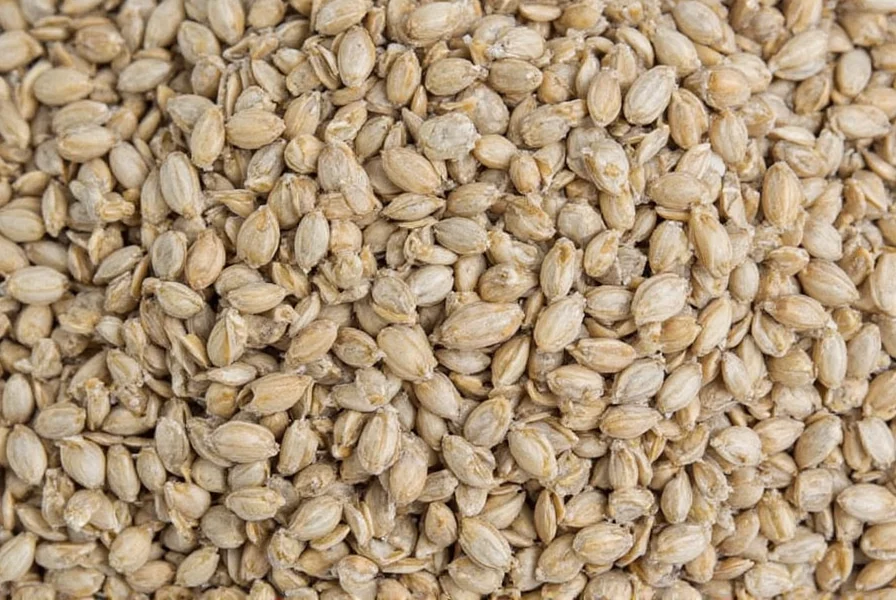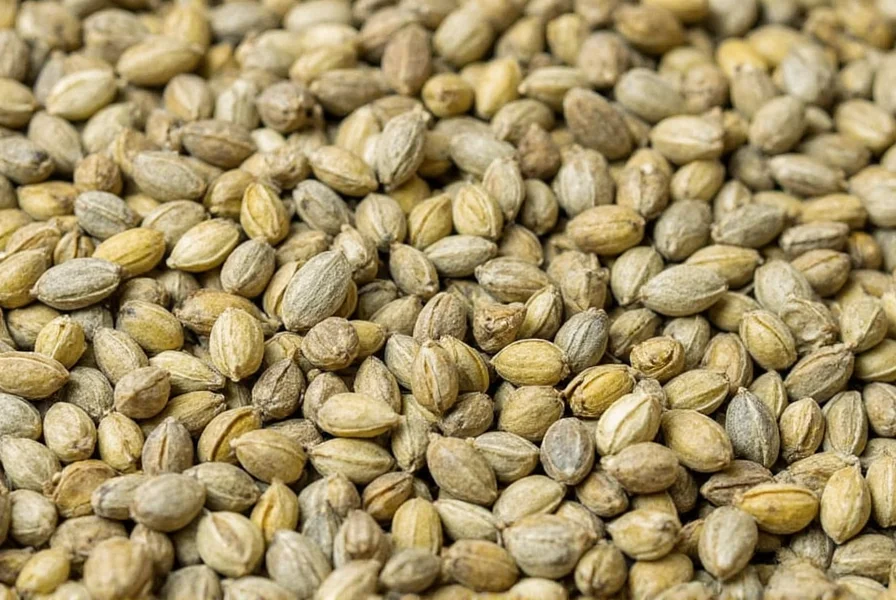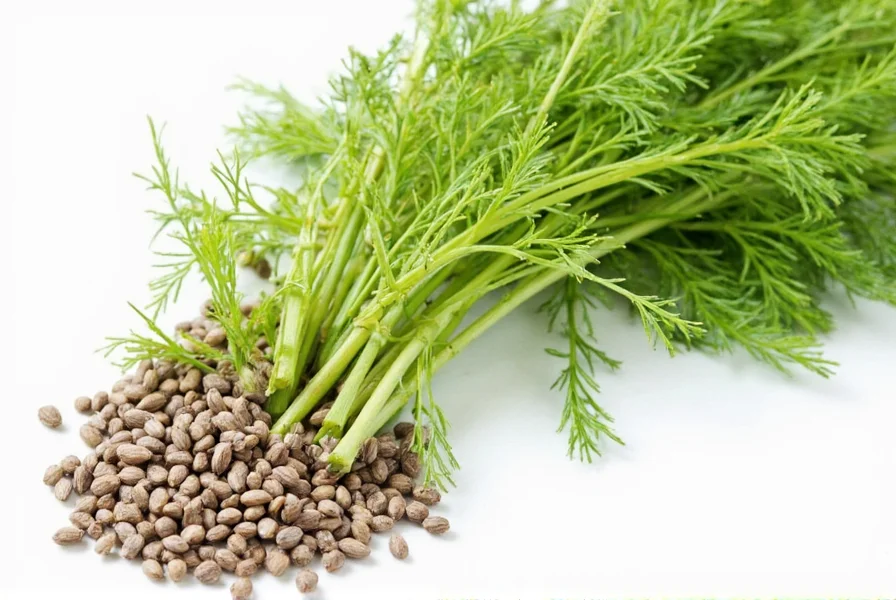
Understanding Fennel Seeds and Their Historical Significance
Fennel (Foeniculum vulgare) is a flowering plant species in the carrot family, native to the Mediterranean but now cultivated worldwide. The small, aromatic seeds have been valued since ancient Egyptian and Roman times for both culinary and medicinal purposes. Historical records show fennel seeds were used to treat digestive complaints, enhance vision, and even ward off evil spirits in some cultures. Modern science has validated many of these traditional applications while uncovering additional health advantages of fennel seeds that make them valuable for contemporary wellness routines.
Top 7 Evidence-Based Advantages of Fennel Seeds
Research has identified several key health benefits associated with regular fennel seed consumption. Unlike many herbal remedies with limited scientific backing, fennel seeds advantages are supported by numerous clinical studies and traditional use spanning centuries.
1. Digestive Health Enhancement
One of the most well-documented fennel seeds advantages is their ability to improve digestive function. The essential oils in fennel seeds, particularly anethole, have antispasmodic properties that relax gastrointestinal muscles. A 2021 review published in Phytotherapy Research found that fennel seed oil significantly reduced symptoms of irritable bowel syndrome (IBS), including bloating, gas, and abdominal pain. The seeds stimulate bile production, which aids fat digestion and nutrient absorption—making them particularly beneficial after heavy meals.
2. Powerful Anti-Inflammatory Effects
Fennel seeds contain multiple compounds with anti-inflammatory properties, including flavonoids and phenolic acids. Chronic inflammation underlies many modern diseases, from arthritis to heart conditions. Research in the Journal of Food Science and Technology demonstrated that fennel seed extract reduced inflammatory markers in animal studies. For those seeking natural approaches to managing inflammation, incorporating fennel seeds for inflammation reduction represents a promising dietary strategy with minimal side effects compared to pharmaceutical options.
3. Rich Antioxidant Profile
The antioxidant capacity of fennel seeds advantages shouldn't be overlooked. These seeds contain rosmarinic acid, quercetin, and other potent antioxidants that combat oxidative stress. A comparative study in Food Chemistry ranked fennel seeds among the top ten culinary herbs and spices for antioxidant activity. Regular consumption helps protect cells from damage that contributes to premature aging and chronic diseases. For maximum antioxidant benefits of fennel seeds, use them whole rather than ground, as processing can reduce their protective compounds.
| Key Benefit | Active Compounds | Recommended Daily Amount | Best Consumption Method |
|---|---|---|---|
| Digestive support | Anethole, estragole | 1-2 tsp seeds | Tea or chewed after meals |
| Anti-inflammatory | Flavonoids, phenolic acids | 1 tsp seeds or 100-200mg extract | Infused in cooking or supplements |
| Hormonal balance | Anethole (phytoestrogen) | 500mg-1g seeds | Tea consumed regularly |
4. Hormonal Balance Support
Among the lesser-known fennel seeds advantages is their potential to support hormonal balance, particularly for women. The compound anethole acts as a phytoestrogen, mimicking some effects of estrogen in the body. A clinical trial published in BMC Complementary Medicine and Therapies found that fennel seed extract significantly reduced symptoms of menopause, including hot flashes and vaginal dryness. For lactating mothers, research indicates fennel seeds for increasing milk production may be effective, though consultation with a healthcare provider is recommended before use.
5. Respiratory Health Benefits
Fennel seeds advantages extend to respiratory health through their expectorant and anti-inflammatory properties. Traditional medicine systems have long used fennel for coughs and bronchitis. Modern research supports these uses, with studies showing fennel seed compounds help relax bronchial muscles and reduce mucus production. The seeds' antimicrobial properties also help combat respiratory infections. For those exploring natural remedies for respiratory issues, fennel seeds for cough relief represent a time-tested option worth considering.
6. Oral Health Improvement
Chewing fennel seeds has been a traditional practice for freshening breath across many cultures. Scientific analysis confirms this practice has merit—fennel seeds contain antimicrobial compounds that reduce oral bacteria responsible for bad breath and tooth decay. Research in the Journal of Ayurveda and Integrative Medicine found that fennel seed extract demonstrated significant antibacterial activity against common oral pathogens. Unlike many commercial breath fresheners that merely mask odors, fennel seeds for oral health address the underlying bacterial causes of halitosis.
7. Potential Metabolic Support
Emerging research suggests fennel seeds advantages may include metabolic benefits. Animal studies indicate fennel seed extract can help regulate blood sugar levels and improve lipid profiles. While human research is still limited, preliminary findings suggest fennel seeds for blood sugar control could be a valuable dietary addition for those managing prediabetes or metabolic syndrome. The fiber content in whole fennel seeds also contributes to slower glucose absorption, preventing blood sugar spikes after meals.
Scientific Evidence Behind Fennel Seeds Benefits
The therapeutic properties of fennel seeds stem primarily from their complex chemical composition. Anethole constitutes 60-80% of the essential oil in fennel seeds and is responsible for many of their biological activities. Additional compounds include:
- Fenchone: Contributes to the characteristic aroma and has antispasmodic effects
- Limonene: A potent antioxidant with anti-cancer properties
- Various flavonoids: Provide anti-inflammatory and antioxidant benefits
- Dietary fiber: Supports digestive health and satiety
A comprehensive review in Frontiers in Pharmacology analyzed over 100 studies on fennel, concluding that the plant demonstrates significant pharmacological potential with relatively few adverse effects when used appropriately. The review particularly highlighted fennel seeds advantages for gastrointestinal disorders, with multiple randomized controlled trials confirming their efficacy.
How to Incorporate Fennel Seeds for Maximum Benefits
To experience the full spectrum of fennel seeds advantages, proper preparation and consumption methods matter. Here's how to maximize their therapeutic potential:
Culinary Applications
Toast whole fennel seeds in a dry pan for 1-2 minutes until fragrant, then use them to season fish, roasted vegetables, or salad dressings. The heat releases more essential oils, enhancing both flavor and bioactive compound availability. For digestive benefits after meals, chew 1/2 to 1 teaspoon of raw seeds slowly.
Fennel Seed Tea Preparation
This simple preparation delivers multiple fennel seeds advantages effectively:
- Crush 1-2 teaspoons of fennel seeds to release essential oils
- Pour 8 ounces of boiling water over the crushed seeds
- Cover and steep for 10 minutes
- Strain and drink warm, preferably after meals for digestive support
For hormonal benefits, consume this tea twice daily. Adding a slice of fresh ginger enhances both flavor and anti-inflammatory effects.
Potential Side Effects and Precautions
While fennel seeds advantages are numerous, they aren't appropriate for everyone. Potential concerns include:
- Pregnancy considerations: High doses may stimulate uterine contractions; pregnant women should consult healthcare providers before regular use
- Allergic reactions: Those with carrot or celery allergies may experience cross-reactivity
- Medication interactions: Fennel may interact with estrogen therapies and certain antipsychotic medications
- Photosensitivity: Rare cases of skin reactions when exposed to sunlight after topical application
The European Medicines Agency recommends a maximum daily intake of 6 grams of fennel seeds for adults. For children, consult a pediatrician before use, especially for infants with colic—while traditional use exists, proper dosing is critical.
Conclusion: Integrating Fennel Seeds Into Your Wellness Routine
Fennel seeds advantages represent a remarkable convergence of traditional wisdom and modern scientific validation. From digestive support to potential hormonal balance, these versatile seeds offer multiple health benefits with minimal risk when used appropriately. Unlike many trendy superfoods with exaggerated claims, fennel seeds have centuries of documented use and growing scientific evidence supporting their therapeutic value. For those seeking natural approaches to enhance digestive health, reduce inflammation, or support overall wellness, incorporating fennel seeds into daily routines represents a simple, evidence-based strategy worth considering. As with any dietary change, consult with a healthcare provider if you have specific health conditions or concerns.

Frequently Asked Questions
What are the primary health benefits of fennel seeds for digestion?
Fennel seeds improve digestion through multiple mechanisms. They contain anethole, which relaxes gastrointestinal muscles and reduces spasms, making them effective for bloating, gas, and IBS symptoms. They also stimulate bile production for better fat digestion and have carminative properties that prevent gas formation. Research shows fennel seed oil can reduce abdominal pain in IBS patients by up to 50% when used consistently.
Can fennel seeds help with hormonal balance, particularly for women?
Yes, fennel seeds contain anethole, a phytoestrogen that can help modulate estrogen activity in the body. Clinical studies have shown fennel seed extract significantly reduces menopausal symptoms like hot flashes and improves vaginal health. For lactating mothers, research indicates fennel seeds may increase milk production, though consultation with a healthcare provider is recommended before regular use, especially for those with hormone-sensitive conditions.
How much fennel seed should I consume daily to experience health benefits?
For general health benefits, 1-2 teaspoons (3-6 grams) of whole fennel seeds daily is considered safe and effective for most adults. For digestive support, chew 1/2 teaspoon after meals. For tea preparation, use 1-2 teaspoons per cup, consumed 1-3 times daily. The European Medicines Agency recommends not exceeding 6 grams daily. Those using fennel seed supplements should follow product instructions and consult a healthcare provider for personalized dosing.
Are there any potential side effects of consuming fennel seeds regularly?
While generally safe, some people may experience side effects from fennel seeds. These can include allergic reactions (especially in those with celery or carrot allergies), photosensitivity in rare cases, and potential interactions with estrogen therapies or certain medications. Pregnant women should consult healthcare providers before regular use, as high doses may stimulate uterine contractions. When used within recommended amounts, most people experience no adverse effects while benefiting from fennel seeds' therapeutic properties.
What's the difference between using whole fennel seeds versus ground fennel for health benefits?
Whole fennel seeds retain their beneficial compounds longer than ground fennel. The essential oils and antioxidants degrade more quickly once seeds are ground. For maximum health benefits of fennel seeds, use them whole and crush or toast them immediately before consumption to release active compounds. Ground fennel loses potency within weeks, while whole seeds maintain their therapeutic properties for 6-12 months when stored in an airtight container away from light and heat.











 浙公网安备
33010002000092号
浙公网安备
33010002000092号 浙B2-20120091-4
浙B2-20120091-4